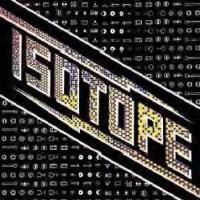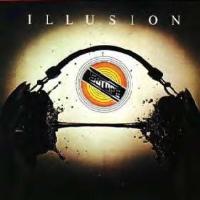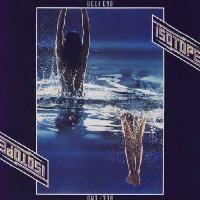Isotope was a British jazz-rock band formed around guitarist Gary Boyle. He had been playing in Dusty Springfield' s band for a couple of years before he was caught by the prog rock virus. While playing in Brian Auger & The Trinity he decided to go back to school to proceed with his musical studies. After leaving school he played with Keith Tippett and Mike Gibbs; being a member of Stomu Yamashta's East West Band he met drummer Nigel Morris. The two formed Isotope in 1972 and soon they recruited bassist Jeff Clyne. Their first eponymous album appeared in 1974. The music on this album has been mainly composed by keyboardist Brian Miller. However, Miller and Clyne left in 1974 to be replaced by the late Hugh Hopper (ex- Soft Machine) on bass and Laurence Scott on keyboards. After touring, this new line-up recorded the second album Illusion (1975). The band's final release Deep End (1976) featured two keyboardists: Zoe Kronberger and Frank Roberts. Hopper still played on one track and on the other tracks the bass was played by Dan K. Brown. Struggles with their management, the record company and the rise of punk rock and new wave caused the band to break up in 1977. Boyle subsequently focused on a solo career. In 2004 the live album Live At The BBC was released. This album, recorded in 1973 and 1974, includes solo performances of Gary Boyle and some Isotope-sessions. Golden Section, recorded in 1974 and 1975, came out in 2008 and featured Hugh Hopper throughout the album on bass guitar. The above-mentioned studio albums by Isotope have been reissued lately. These albums are a real treat for people who enjoy both progressive rock music and a jazz-rock fusion style of music. Only Deep Ends contains some bonus tracks, but all of the albums contain fine liner notes from Mr. Boyle and the other musicians that were involved at the time. Moreover the music has been 24-bit digitally remastered and the booklet contains some exclusive archive pictures which excellently complete these releases. While listening to the albums of Isotope I realized again why I've always liked the music of bands as Colosseum II and Greenslade in the seventies. The many jazz-rock elements and the way they improvised appealed to me a lot. I think these bands had one thing in common: drummer Jon Hiseman (Colosseum II) and keyboard player Dave Greenslade (Greenslade) had both played in Colosseum before they formed their own bands. Colosseum experimented a lot with jazz and rock music and blended these styles of music into a very pleasant kind of jazz-rock. It's the same kind of jazz-rock you can hear on the three studio albums recorded by Isotope. In a way the albums resemble the music of bands as Brand X, Mahavishnu Orchestra, Soft Machine, Return To Forever and Weather Report. Most songs were written during improvisations at live performances. Sometimes a band member came up with a tune and the others added fragments to it while improvising at rehearsals. On the band's debut Isotope keyboard player Brian Miller wrote the bulk of the material. Boyle only wrote Honkey Donkey. The second album Illusion was more of a band effort since almost all musicians contributed to the compositions. However, bassist Hugh Hopper dominates with his style of playing. Opposed to Morris' explicit funky drum grooves you'll hear the roar of Hopper's fuzz bass. Also the band's swansong Deep End was a real band effort and this time all musicians were involved in the writing of the material. The twin-keyboard approach provided for a more intricate textured, melodic presence against too much funk driven arrangements. I guess producer Robin Lumley had an active part in the sound of this album, because at the time he was the well-respected keyboard player of Brand X, one of the most important British jazz-rock bands having once Phil Collins in the line-up. It's funny to read what has become of the members that once played in Isotope. Gary Boyle is already seventy years old and has become a well-respected player who's still performing in the British jazz-scene. Dan K. Brown became a successful bass player with The Fixx, while drummer Nigel Morris became a pastor for the Los Angeles Police Department. Keyboardist Laurence Scott returned to his former profession as a dentist and Zoe Kronberger was successful as a painter in Paris. Both Hugh Hopper and Jeff Clyne deceased much too early in 2009. People who enjoy strong instrumental jazz-rock with fine soloing on the guitars and the keyboards must certainly try out these three albums by Isotope. If you like the music of the bands mentioned in this review you will like the music created by one of England's most dynamic jazz-rock outfits as well. *** / *** / *** Henri Strik (edited by Peter Willemsen) Where to buy? |


